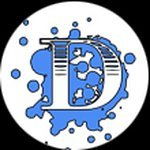Natural Offspring
In many ways, Divergents Magazine is a natural offspring of Landmark College. The radical idea to found a college for divergent learners created a network of divergent writers, artists, and thinkers. Historically isolated as “individuals with disabilities,” Landmark created an army of divergents—educated and articulate, armed with the self knowledge and confidence to challenge the orthodoxy of neurotypical education. Divergents Magazine’s editorial board and pool of contributing writers is dominated by Landmark Alumni. Arts editor Christina Tedesco and Photographer/Social Media Editor Jake McGlaughlin are both graduates, and the first issue features work by Leon Rice, Christopher Mathey, W.E. “Bill” Drake, and Marisa Smith DiBernardo.
Founded in 1985, Landmark College stood at the crossroads of a changing paradigm. The term “neurodiversity” was not in wide use at the time, but many of us at Landmark recognized that people with minority neurological profiles were only “disabled” in the context of the neurotypical assumptions about education. That was the culture we created at Landmark College in the late nineties. I remember the feeling of freedom; one could experience this new paradigm in a living form. For many of us, it was the first time divergents were the majority population. It was the first time we could be honest about ourselves. For the first time in my life, It was actually safe to be who I was. The neurodiversity paradigm had not yet reached academia, but we knew what it felt like.
At the time I was writing articles to promote something I called “LD Culture,” describing the extraordinary work and abilities of divergent people when allowed to be themselves. Needless to say, these articles did not resonate with the “expert” literature, steeped in the construct of "disability." All of the major publications regarding neurological minorities were (and largely still are) controlled by neurotypical experts—most of whom identify themselves as "normal." Although neuro-divergents constitute between 14-30% of the population, divergents’ status as a marginalized group is blurred by a legal structure categorizing us as “individuals with disabilities.” At the educational level, the question of what to do with us is a debate fueled by school budgets and not science. This legal, budgetary structure is then promoted by a professional class that continues to manage and interpret our experiences for us and the outcomes are universally horrible.
Rather than arguing directly with the neurotypical “experts” and their antiquated paradigm, Divergents Magazine imagines a world in which the shift is already complete. We present these voices—historically silent in the conversation—because each story, each insight, and each image expresses the experience for millions who have never had a voice. Divergents Magazine invites us to be proud, to never again apologize for our difficulties, but to stand and be recognized for our gifts.
